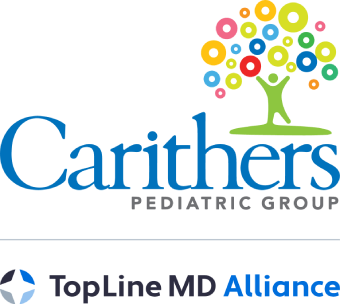By nature, most children are occasionally noisy, impatient, and overly energetic. However, if this behavior is more than occasional and interferes with daily life, attention deficit hyperactivity might be the cause. If you’re worried about your child’s behavior, then understanding ADHD in children may be beneficial to help know when to consult with your child’s pediatrician.
ADHD Basics
Attention deficit hyperactivity disorder (ADHD) is a chronic condition that affects the brain and central nervous system and impairs growth and development. According to the American Academy of Pediatrics, ADHD affects about 9.4% of US children between the ages of 2 and 17. Children with the disorder have difficulty controlling their behavior. This can have negative effects on their ability to learn and socialize.
It can be difficult to nail down the cause of ADHD, but research has shown that the disorder may be linked to:
- Abnormalities in brain anatomy and function
- Genetics and heredity
- Serious head injury
- Exposure to alcohol, nicotine, or other drugs in the womb
- Prematurity
Some people claim that food additives, excess sugar, immunizations, or allergies cause ADHD but medical research has yet to support these claims.
Symptoms of ADHD in Children
All children will have periods where they are unable to sit still, are distracted, or misbehave. However, children with ADHD have persistent symptoms that do not improve over time. Symptoms of ADHD can start as early as age 3 and they generally appear before age 12. The symptoms of ADHD fall into three categories: inattention, hyperactivity, and impulsivity.
Inattention
This is the “attention deficit” part of the disorder. Children may have trouble maintaining focus or seem like they do not listen when being directly spoken to. However, inattention can take several forms. Common manifestations include:
- Being easily distracted
- Forgetting chores or assignments
- Inability to focus on school assignments
- Frustration with tasks that take time to master
- Lack of follow-through
- Making careless mistakes
- Daydreaming
- Poor time management
- Losing things
- Difficulty with active listening
- Avoiding tasks that require sustained focus and effort
Hyperactivity
Children without ADHD are often full of energy and seem hyperactive. That’s just how children are. However, children with attention deficit hyperactivity disorder will have continuous challenges, including:
- Fidgeting or squirming when trying to be still
- Talking too much
- Difficulty staying in their seat at school or during meals
- Difficulty playing quietly
- Running around, on top of, and under things.
Impulsivity
Again, all children display impulsive behavior as they grow and learn self-control. In ADHD, these behaviors are frequent and they don’t “grow out” of them as they mature. Some impulsive behaviors to pay attention to include:
- Talking at inappropriate times
- Interrupting others
- Not waiting their turn to speak or participate in an activity
- Inability to wait patiently
Treatment and Outlook
ADHD is diagnosed through evaluations by pediatricians and other health professionals. Symptoms must be present for at least 6 months and not be the norm for children in their age group. Also, the symptoms must be present and disruptive in multiple settings, such as both at school and at home.
Children diagnosed with ADHD may face challenges academically and socially, but working with your pediatrician and other specialists (with necessary) can make everyday activities more manageable. Children with ADHD may have a higher risk of injury due to inattention, so being proactive and seeking treatment early is important.
The most common treatment for ADHD in children is a combination of stimulant medication and behavioral therapy. Your doctor will work with you to find the right type and dosage of medication. Some parents worry the drugs used to treat symptoms are a gateway to illegal drug use. However, patients taking stimulants to manage ADHD are not more likely to use other drugs.
Talking to the Pediatrician About ADHD
If you’re concerned your child may have ADHD, talking to your pediatrician is a good first step. Be open about the symptoms that your child is exhibiting. The pediatrician may refer you to a specialist or an evaluator for assessment to help with a diagnosis. Coordination with teachers, school counselors, administrators, and other school staff is also crucial so that all of your child’s educational needs are being met.
Carithers Pediatric Group is committed to providing comprehensive care to infants, children, adolescents, and young adults in Northeast Florida. Our pediatric services include well-child visits, sick visits, preventive care, immunizations, and management of chronic conditions and special needs. If you have concerns about ADHD and your child, make an appointment by calling our Riverside office at (904) 387-6200 or our Southside office at (904) 997-0023.


